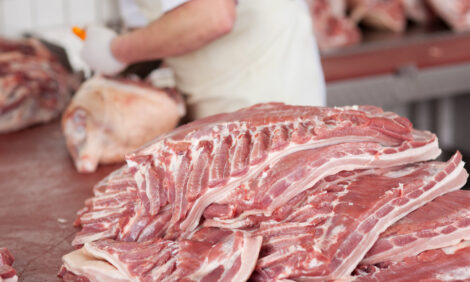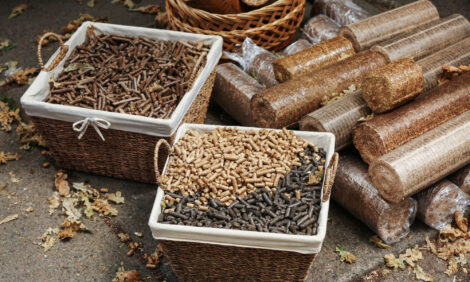



Ukraine denies trade-off plan for agriculture in EU talks
Ukraine farm sector goods dominate exportsTerms for the integration of Ukraine's agricultural sector into the European Union will be determined during negotiations, Reuters reported, citing two ministers on Tuesday, denying Kyiv was considering seeking an easing of the EU's Green Deal requirements.
Earlier on Tuesday, a senior official told Reuters that Ukraine could consider forgoing the EU's agrarian subsidies in exchange for an easing of Green Deal requirements during accession talks starting next month.
"The terms of Ukraine's agricultural sector's accession to the EU's Common Agricultural Policy (CAP) will be determined during the negotiation process," Deputy Prime Minister Olha Stefanishyna and Farm Minister Mykola Solsky said in separate statements.
"There can be no talk of any abandonment of subsidies and grants, as the rules should be the same for everyone," they said.
Ukraine, which has a huge agrarian complex capable of feeding hundreds of millions of people, was invited to join the EU last year and will start sectoral talks on its accession in March to harmonise its legislation with EU requirements.
Integrating Ukraine's vast agricultural sector, which before Russia's full-scale invasion in 2022 was the world's fourth-largest supplier of grain, into the EU is likely to be highly sensitive, both politically and economically.
Kyiv could be eligible for 96.5 billion euros ($104 billion) in subsidies from the EU's Common Agricultural Policy over seven years, if current rules are applied to an expanded union.
"It seems to me that the ideal negotiating strategy (is to achieve) fewer restrictions on trade, fewer restrictions on the environment (for Ukrainian farmers) and we are willing to trade this for subsidies," the official said.
The official requested anonymity to discuss sensitive matters. A European Commission spokesperson didn't immediately return a request for comment.
Avoiding red tape
"We must protect our competitiveness, we must not make bureaucracy that would stop development especially in our conditions - for example, to get ten environmental certificates for some small thing."
The agricultural sector is crucial for Ukraine's battered wartime economy and pre-war, in value terms, grain accounted for half of all Ukrainian exports.
Ukraine already sells a significant part of its farming produce to the EU and as a member its exports would not be subject to tariffs or quotas.
The talks come at a sensitive time, with farmers across Europe taking to the streets in protest in recent weeks at the EU's Green Deal regulations on animal welfare and pesticide use, as well as the need to leave 4% of farmland fallow.
The subsidy payouts to Kyiv could also force cuts in farm subsidies to existing member states of about 20%, the Financial Times reported last autumn.
The EU's decision to waive import duties on all Ukrainian food in 2022 has already fuelled protests in neighbouring bloc members as farmers struggle to compete with cheaper Ukrainian farm products.
The European Commission last month said it would extend the suspension of its import duties on Ukrainian exports.
But it also proposed measures to limit agricultural imports from Ukraine and offer greater flexibility on rules for fallow land in a bid to quell protests by angry farmers in France and other EU members.
Without subsidies?
Easing tough environmental regulations, new subsidies and lower taxes are the key demands set out by protesting European farmers, who believe that such steps will protect them from outside competitors like Ukraine.
Many Ukrainian farmers believe that joining the union would give them access to large-scale subsidies, which would increase their harvest and bring in more income.
However, some officials say the subsidies could conversely play against Ukraine.
"I think it is a problem. Subsidies in agriculture very often play a bad role when they become a painkiller and you get used to them," the official said.
Ukrainian farmers could become less dynamic, the source said.
"When you live in a system of subsidies, you are tied to them. If you have a subsidy for carrots, then only carrots will be planted," he noted.



